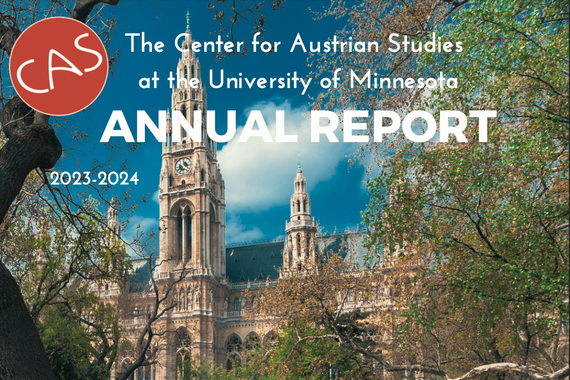Ambika Natarajan Announced As 2022 Center for Austrian Studies Dissertation Prize Winner
The committee is very pleased to unanimously award the CAS Dissertation prize to Ambika Natarajan.
Natarajan’s study of migrant women who worked in service in Vienna places maidservants at the centre of Viennese social life and the wider Habsburg Empire. Natarajan shows that narratives about domestic service served as a tool with which to establish baselines of acceptability and criminality, even as domestic servants crossed these boundaries throughout the period 1850-1914. Questioning the category of passive victims assigned to maidservants at the time, Natarajan works against the silencing of maidservants by combining statistical analyses of the servant population with qualitative analyses of caricatures, news reports of murders, police files and medical discussions to reconstruct the limited landscape of choices and range of repressive marginalizations which maidservants actively navigated in everyday life.
Natarajan identifies service as one of the essential drivers of female migration and employment within the Empire, and shows that narratives about this population, so revealing of anxieties about the Freudian nuclear family and the boundaries of the elite home which service personnel transgressed, played a role in constructing the empire itself. Sitting solidly in the literature on gender-anxious fin-de-siecle treatments of working women, sex in politics, religious discourse, art and science, this migratory study of working women provides a new perspective on the Habsburg Empire on the basis of copious archival source work in various languages.
Natarajan’s writing is brisk and engaging, and she seamlessly weaves together the various source materials into a rich and nuanced picture of Vienna and the broader empire. The dissertation examines various contextual frames for understanding the so-called Servant Problem and then uses case studies drawn from police records to show how individual women lived and moved within these frames. The chapter on Mädchenhandel is especially compelling in its portrayal of young women who moved freely around the empire to earn money in the sex industry.



